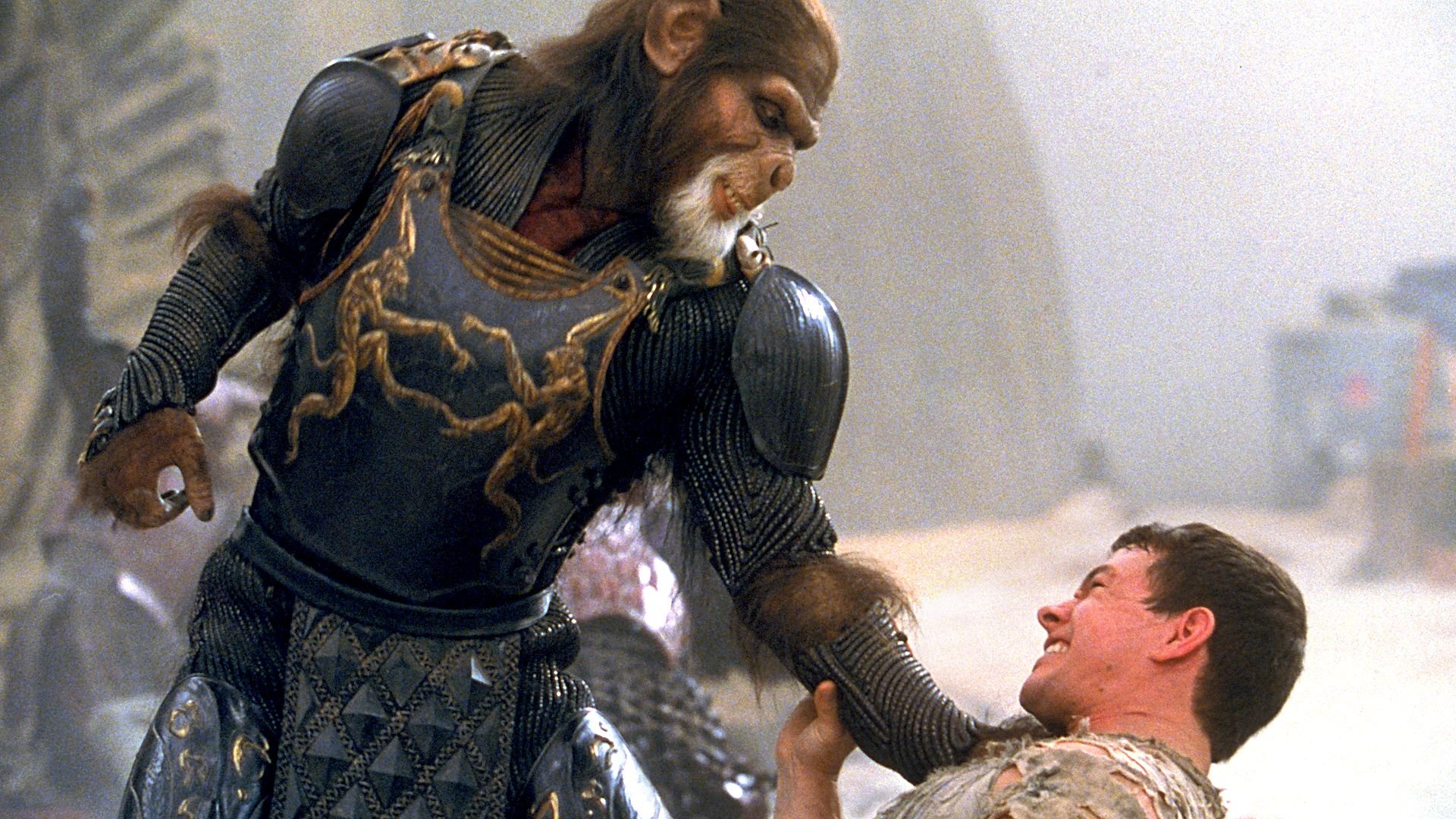“Planet of the Apes” (2001)

Tim Burton’s “Planet of the Apes” (2001) reimagines the classic science fiction franchise with a fresh perspective, offering a visually striking and thematically rich exploration of identity, evolution, and the consequences of unchecked scientific experimentation. While paying homage to the original 1968 film directed by Franklin J. Schaffner, Burton infuses the narrative with his distinctive visual style and philosophical musings, creating a thought-provoking and visually captivating cinematic experience.

The narrative centers around Captain Leo Davidson (played by Mark Wahlberg), an astronaut who crash-lands on a mysterious planet ruled by highly evolved apes. As Davidson navigates this strange and hostile world, he discovers a complex social hierarchy where humans are enslaved and treated as primitive creatures, while apes have established a sophisticated civilization reminiscent of human society.
Central to the film’s exploration is the theme of identity and evolution. Through the character of Leo Davidson, “Planet of the Apes” challenges viewers to question the nature of humanity and civilization. Davidson’s journey from a stranded astronaut to a reluctant revolutionary mirrors the evolution of societal norms and values, prompting reflection on the consequences of hubris and the pursuit of scientific advancement without ethical boundaries.

Mark Wahlberg’s portrayal of Leo Davidson anchors the film with a mix of determination and vulnerability, capturing the character’s disbelief and subsequent defiance in the face of the apes’ oppressive regime. His interactions with notable ape characters such as General Thade (played by Tim Roth), Ari (played by Helena Bonham Carter), and Attar (played by Michael Clarke Duncan) highlight the complexities of power dynamics and interspecies relationships, raising questions about empathy, prejudice, and the potential for coexistence.
Thematically, “Planet of the Apes” delves into the ramifications of social hierarchy and the struggle for dominance among different species. The film’s depiction of the ape society, with its echoes of human politics and cultural norms, serves as a commentary on the fragility of civilization and the recurring patterns of oppression and rebellion throughout history. Burton’s direction emphasizes these themes through stunning visual effects and elaborate production design, immersing viewers in a world where the boundaries between human and ape blur.

Moreover, “Planet of the Apes” explores the ethical implications of scientific experimentation and genetic manipulation. The revelation of the apes’ advanced intellect and human-like behavior raises unsettling questions about the limits of scientific curiosity and the potential consequences of playing “creator” without regard for the moral implications. The film’s climactic twist challenges viewers’ perceptions of identity and reality, inviting contemplation on the nature of progress and the inherent dangers of tampering with nature.
Visually, “Planet of the Apes” is a testament to Tim Burton’s distinctive aesthetic, with its Gothic-inspired set designs, elaborate costumes, and innovative makeup effects that bring the ape characters to life. The film’s blend of practical effects and digital enhancements creates a visually immersive experience that enhances the narrative’s themes of otherness and societal reflection.
In conclusion, “Planet of the Apes” (2001) stands as a thought-provoking and visually stunning entry in the science fiction genre, offering a compelling reimagining of the classic story with a focus on identity, evolution, and the ethical implications of scientific progress. Through its engaging narrative, memorable performances, and striking visual style, the film invites viewers to ponder timeless questions about humanity’s place in the universe and the consequences of our actions on both ourselves and the world around us.











